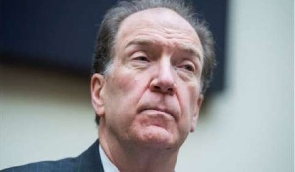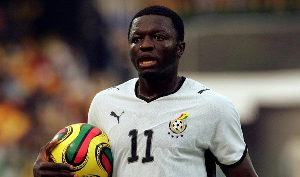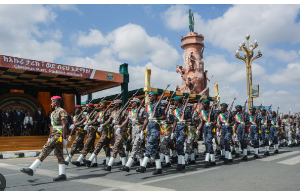President of di World Bank don tell BBC say im dey concerned about some of di loans China dey loan to developing economies for Africa.
David Malpass say di terms and conditions need to dey "more transparent".
Dis dey come as concerns dey say kontris wey include Ghana and Zambia dey struggle to repay dia debts to Beijing.
China say dat kain lending dey happun within international rules.
Developing kontris dey often borrow money from oda nations or multilateral bodies to finance sectors wey go grow dia economies like infrastructure, education and agriculture.
However di sharp increase on interest rates for di US plus oda major economies over di last year dey make loan repayments dey more expensive because dem no do many of those borrowings in foreign currencies like di US dollars or euros.
Na big problem for developing economies wey fit struggle to find di extra money wey dey required as di relative value of dia own currency fall.
Na "double whammy and e mean say di [economic] growth go dey very slow", Mr Malpass tok.
US-China rivalry
Tackling dat challenge and dia consequences na one of di main reasons why US Vice-President Kamala Harris visit three African kontris recently.
Di visit na one wey come wit big commitments of financial support to Tanzania and Ghana.
Growing rivalry dey ground as China don begin gain popularity for di continent, sake of di abundance of natural resources wey include metals, such as nickel, wey dey important for di batteries dem need for technology like electric cars.
Di US Vice president wen she dey tok for Ghana capital, Accra, say "America go dey guided no be by wetin dem fit do for dia African partners, but wetin dem fit do wit dia African partners".
As she dey tok about a new nickel processing facility for Tanzania, Ms Harris say di project go dey supply di US plus oda markets by 2026 and say e go "help address di climate crisis, build resilient global supply chains, and create new industries and jobs".
Mr Malpass hail di collaborative approach and e tok say di competition between di world two biggest economies dey "maybe healthy for developing kontris" as e provide different options.
"Wetin I dey encourage strongly na say make dem dey transparent for dia contracts. Dat na one of di problems; if you write contract and tok 'but no show am to anybody else', dat na minus. So comot hand for dat kain thing."
E also warn "goments for Africa say make dem no offer collateral as incentive to collect loan, because e go dey add up for generations. Dat dey happun wit China."
Beijing don become one of di biggest sources for loans to developing economies in recent years.
One new study wey Kiel Institute for the World Economy lead show say globally China borrow $185bn (£150bn) in bailouts to 22 kontris between 2016 and 2021.
China disagree wit suggestions wey tok say dem dey exploit oda kontris wit dia financial support.
For one press conference dis week Foreign Ministry Spokesperson Mao Ning say China "respect di will of relevant kontris, and dem no ever force any party to borrow money, dem never force any to pay, dem no go attach any political conditions to loan agreements, and dem no dey seek any political self-interest".
Mr Malpass say di problems no dey unique to Chinese financing but things dey improve.
"If you think of di history of Western lending, sometimes no be foor di full benefit of di pipo for di kontris dem dey borrow money. Even World Bank loans no dey always be for e for do for di kontri."
"So wetin we dey try do, and I think everyone suppose dey try do na to improve di quality of di lending.
"One of di techniques na to unbundle di loan, dis one mean say if investment project dey, make we tok say if you dey build train, describe di project how much e go cost. And then arrange di financing separately.
"If you bundle dem together, e go make am very hard to know, if yoy dey get a good deal on di train or on di financing."
Food and energy concern
Di outgoing World Bank president also dey concerned of di prices of food, fertiliser and energy prices wey dey rise sake of di war for Ukraine, and dey chop goment budgets for poorer countries. While dat fit deepen di economic challenges dem dey face, relief dey say di price rises don begin go down.
Di World Bank dey worry say these challenges fit worsen a first-ever increase for di global extreme poverty rate – pipo go dey live on less than $1.90 per day. Sake of di coronavirus pandemic, e rise from 8.4% to 9.3%.
Di world leading development body hope say dia upcoming showpiece joint Spring Meetings wit di IMF for Washington go help dem raise more money to tackle dia key mission.
"Di ambition dey there, Mr Malpass tok, "but di needs dey much bigger pass di amount of money wey dey enta."
BBC Pidgin of Monday, 3 April 2023
Source: BBC







![A file photo of the private jet [Image Credit: Yaw Pare via Facebook] A file photo of the private jet [Image Credit: Yaw Pare via Facebook]](https://cdn.ghanaweb.com/imagelib/pics/153/15348139.295.jpg)








